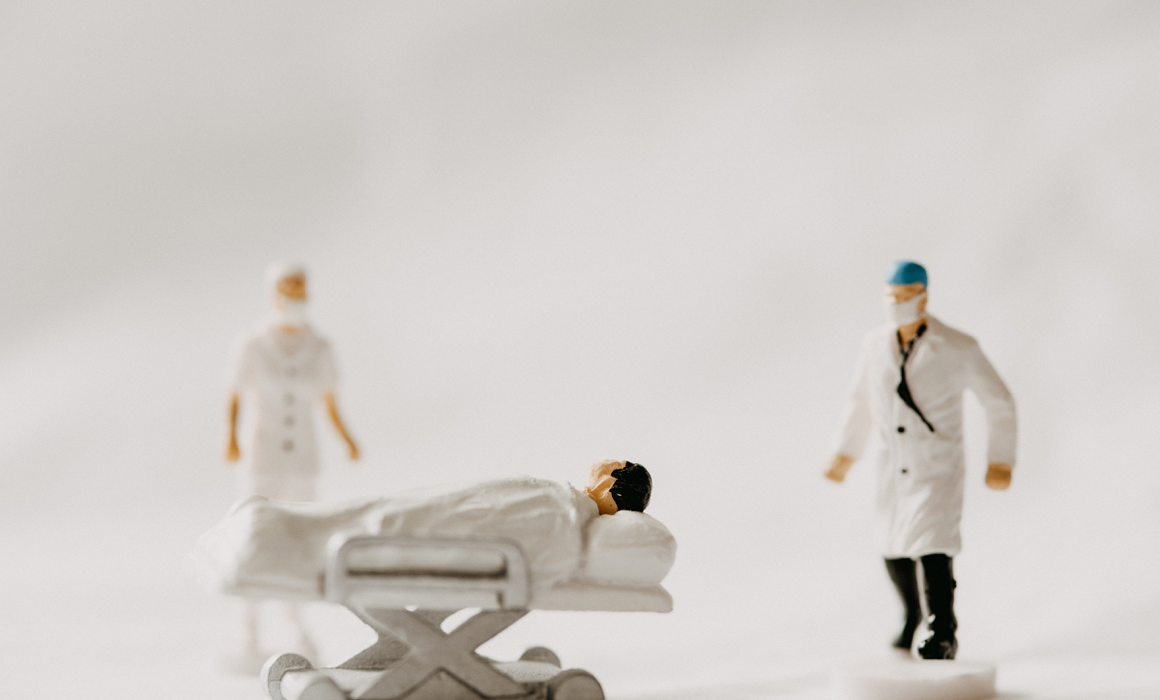
It’s very confusing time when you receive a breast cancer diagnosis, and part of the confusion is meeting – and being referred to – a wide range of medical professionals. So we thought it would be helpful to introduce you to some of the healthcare professionals you may come across. Remember that if, at any time, you come across someone who you don’t know and you’re not sure what role they play in your treatment, just ask. We’ve written this from our own experience as people who’ve had breast cancer and been through the treatment – it’s been reviewed by a breast care nurse.
Breast Surgeon These are doctors who specialise in breast surgery. Most people who have surgery as a result of breast cancer (for example, a lumpectomy, a mastectomy, and/or lymph node removal) will have their surgery undertaken by a breast surgeon. Sometimes breast surgeons also carry out breast reconstruction following a mastectomy or lumpectomy, but sometimes reconstruction is carried out by a Plastic Surgeon (or Oncoplastic Surgeon).
Clinical Specialist Nurse (CNS)/ Breast Care Nurse Hospitals often have nurses who are specially trained to look after cancer patients (Clinical Specialist Nurses), and a nurse who is specially trained to look after breast cancer patients is a Breast Care Nurse. These nurses work closely with all the other doctors and they will be your main point of contact at the hospital who you can contact with any concerns or questions about your treatment.
Genetic Counsellor You may be offered (or you may request) to have a genetic test carried out to see whether you have a gene that increases the likelihood of breast cancer. There are a variety of reasons for carrying out such a test. You may come across a Genetic Counsellor as part of the process or after you’ve received your results. This is a healthcare professional with specialist knowledge of genetics and inherited illnesses who can explain the implications of your genetic test results.
Oncologist These are doctors who specialise in treating patients who have cancer. They will plan your treatment according to your personal situation: the type of breast cancer, your tumour size, whether the cancer has spread, your age, whether you are pre- or post-menopausal, if lymph-nodes are involved and a host of other information. Sometimes it can take a little while after your diagnosis for the oncologist to prepare your treatment plan and they have to take lots of information into account, and consider all the possible treatment options.
Oncology Nurse These are nurses who are specially trained in oncology. You will probably come across Chemotherapy Nurses when you go for your chemotherapy treatments – these nurses are specially trained in administering chemotherapy.
Pathologist The pathologist is the person who examines the tissue samples taken in your biopsy to see whether the samples contain cancer cells.
Pharmacist (those on chemotherapy or targeted therapy) The pharmacist is responsible for providing the medication that you need during your treatment.
Psychologist A psychologist is a medically trained professional who, in the context of a cancer diagnosis, helps people cope with the emotional impact of their diagnosis.
Radiologist These are doctors who specialise in looking at breast and body scans such as x-rays, ultrasound, CT, PET, MRI to diagnose cancer.
Radiographer These are technicians who specialise in mammograms and ultrasounds.
Radiotherapy team If part of your treatment plan involves radiotherapy (see our section on Radiotherapy for more information on this form of treatment), you will meet a wide range of therapeutic radiographers within the radiotherapy department: for your initial appointment you might meet a consultant therapeutic radiographer who may consent you for treatment, a pre-treatment therapeutic radiographer who will help take your CT (planning) scan and may give you permanent tattoos if you need them. A dosimetrist or medical physicist will design your personalised radiotherapy treatment plan, and a treatment therapeutic radiographer who will deliver your treatment and answer any questions you have. You may also have a treatment review therapeutic radiographer who will be checking in on you during and after your radiotherapy.
Future Dreams hold a range of support groups, classes, workshops and events to help you and your carers during your breast cancer diagnosis. These are held both online and in person at the London-based Future Dreams House. To see what’s on offer and to book your place, see here.
To return to the homepage of our Information Hub, click here where you can access more helpful information, practical advice, personal stories and more.
Reviewed January 2023
The information and content provided on this page has been written from a patient’s perspective then reviewed by a breast care nurse and it is intended for information and educational purposes only. It is not intended to substitute for professional medical advice. Please contact your medical team for advice on anything covered in this article and/or in relation to your personal situation.
Share

Support awareness research
Donate to those touched by BREAST cancer
Sylvie and Danielle began Future Dreams with just £100 in 2008. They believed nobody should face breast cancer alone. Their legacy lives on in Future Dreams House. We couldn’t continue to fund support services for those touched by breast cancer, raise awareness of breast cancer and promote early diagnosis and advance research into secondary breast cancer without your help. Please consider partnering with us or making a donation.



